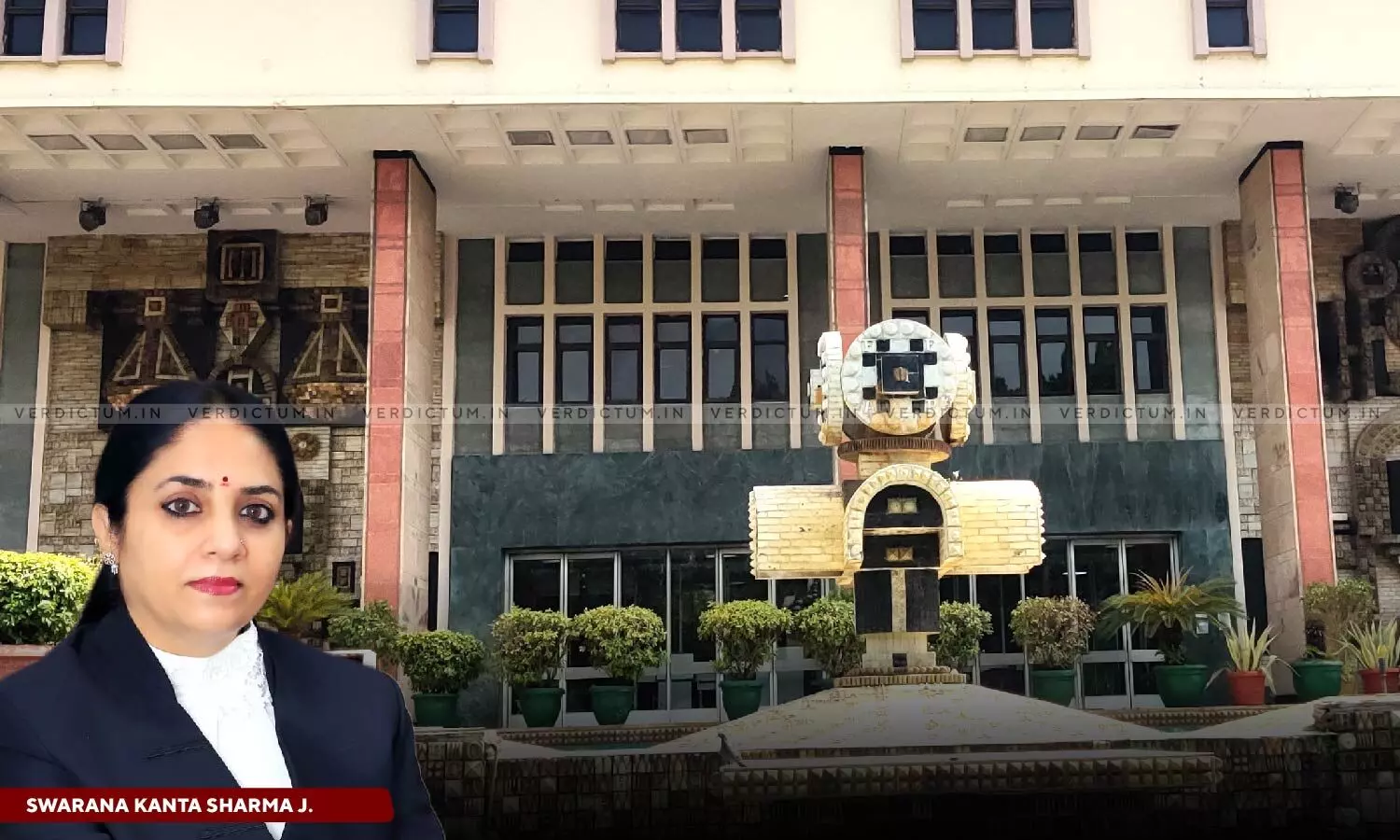
Furlough Will Lose Its True Purpose & Shine If Bound By Rigid & Mechanical Interpretation: Delhi HC Grants Furlough To Rape Accused
 |
|The Delhi High Court observed that the benevolent provision of furlough would lose its true purpose and shine if it was bound by a rigid and mechanical interpretation by the competent authorities.
The Bench directed the release of a convict serving a life sentence for an offence under Section 376 of the IPC on a three-week furlough since the convict was “trying to reform himself” and becoming “a useful member of the community, including his act of sending money regularly to his family for their up keep.”
A Single Bench of Justice Swarana Kanta Sharma observed, “If the provision of furlough is bound by rigid and mechanical interpretations of the rules, it will lose its true purpose and shine. Furthermore, a benevolent provision designed for the welfare of prisoners will diminish in the shadow of rigid interpretations by competent authorities. The Courts must be compassionate to ensure that the solitude of prison cells does not adversely affect the mental well-being of a prisoner and that the path of their rehabilitation is not derailed under the pretext of their reformation being inconsequential.”
Advocate Sanjeev Kumar Baliyan represented the petitioner, while ASC Amol Sinha appeared for the respondent.
The petitioner, convicted for offences under Section 376(2) of IPC and Section 6 of POCSO Act, filed a petition under Article 226 of the Constitution, challenging the order rejecting his furlough request. It was rejected on the ground of nature of crime committed by him and the adverse police report filed against him. His plea sought the issuance of a writ of certiorari to annul the rejection order and a mandamus directing his release on furlough.
Deliberating on the purpose of furlough, the Court stated it “offers a glimmer of opportunity for temporary release, allowing individuals to reconnect with their families, seek medical treatment, or pursue rehabilitation programs.”
“The provision of parole/furlough is a step towards such opportunities being granted at some intervals to help an offender, be part of his family and the society and not get lost in the quagmire of guilt, depression, isolation or the other negative emotions which may engulf him being confined for long within the four walls of prison,” the Court remarked.
The Court noted Rule 1223 of the Delhi Prison Rules, 2018, detailing the eligibility criteria for furlough: good conduct in prison, three annual good conduct reports, not being a habitual offender, and being a citizen of India. Therefore, the petitioner fulfilled all the criteria as per the Court.
“The concept of imprisonment in India, akin to many other nations, serves dual purpose within the criminal justice system. Firstly, it aims to safeguard society from the harmful actions of the convicted persons, ensuring the safety and security of its members by removing offenders i.e. criminals from the society and imprisonment acts as a deterrent against future criminal acts and protects innocent citizens from potential harm. Secondly, imprisonment is also designed to facilitate the rehabilitation and reformation of the convict,” the Court observed.
Accordingly, the High Court disposed of the petition.
Cause Title: Ashok Kumar v. State of NCT of Delhi (Neutral Citation: 2024:DHC:3571)
Appearance:
Petitioner: Advocate Sanjeev Kumar Baliyan
Respondent: ASC Amol Sinha; AdvocateS Ashvini Kumar and Chavi Lazarus